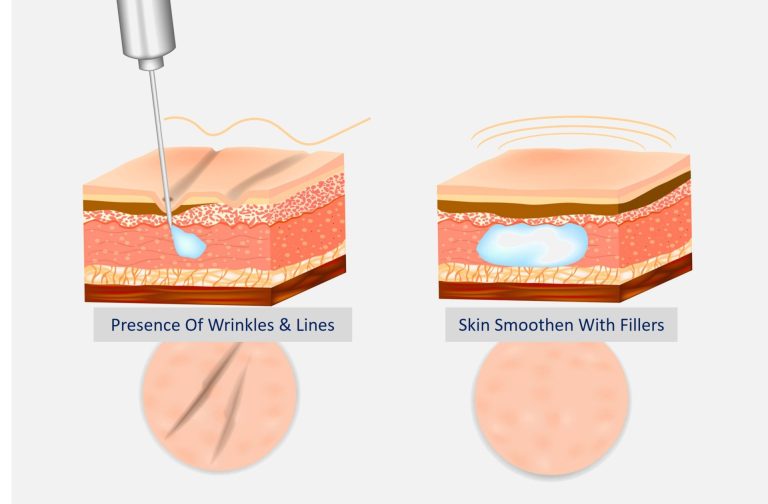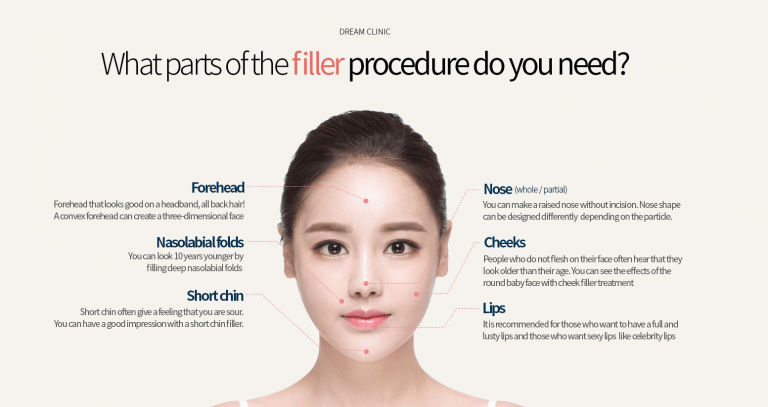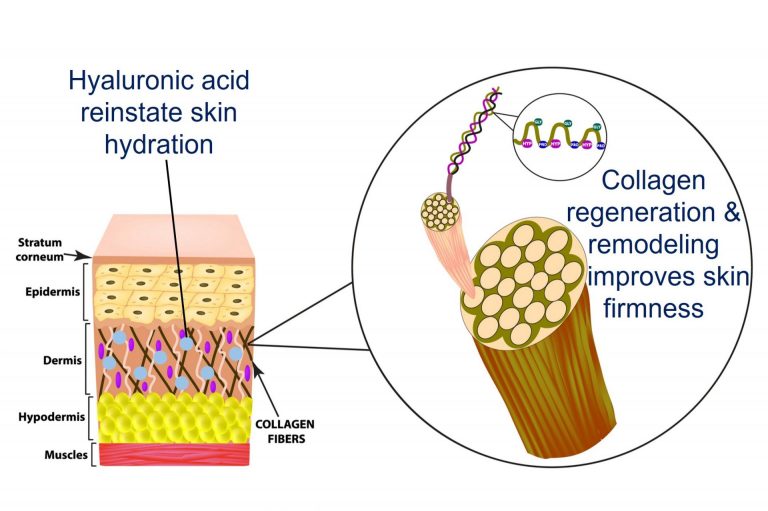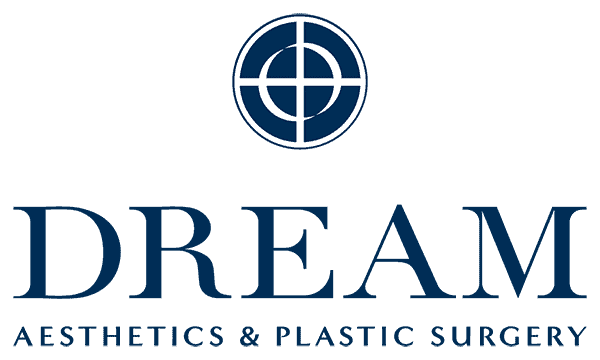
Dermal Filler Injection for
Facial Contouring & Augmentation
What Are Dermal Fillers

Dermal fillers are injectable gels primarily composed of hyaluronic acid (HA), a naturally occurring substance in the body. These fillers are designed to restore volume to areas of the face that have lost fullness, enhancing facial contours and promoting collagen production.
Dermal fillers rejuvenate the face in two key ways. First, they provide a subtle lift by adding volume to smooth out deep creases, wrinkles, and sagging skin. Secondly, they stimulate the body’s natural production of collagen, improving skin elasticity and providing long-term benefits.
This minimally invasive procedure offers a non-surgical approach to facial rejuvenation, with results that are typically immediate and can last for several months depending on the type of dermal filler used.
What Areas Are Best Treated With Fillers

Here is the list of the common areas where fillers can be used:
- Volumize your lips
- Fill the forehead lines
- Plump up your cheeks
- Reshape your nose and cheeks
- Eliminate nasolabial folds
- Shape and define the chin
- Conceal eye bags and dark circles
Types Of Dermal Fillers
There are variety of dermal fillers available in Singapore:
Hyaluronic Acid (HA) Fillers
Hyaluronic acid fillers are among the most common options due to their versatility and safety profile. HA is a naturally occurring substance in the body that helps to hydrate and plump the skin. These fillers are commonly used to restore volume in areas such as the cheeks, lips, and under-eye regions. Results are immediate, with effects lasting from 6 to 18 months, depending on the specific product used.
Common brands: Juvederm®, Restylane®, Belotero®, Fillmed®
Calcium Hydroxylapatite (CaHA) Fillers
This type of filler is made of calcium particles suspended in a smooth gel. CaHA fillers are typically used for deeper wrinkles and volume loss in areas like the nasolabial folds or jawline. They also help stimulate collagen production, providing longer-lasting results, often up to 12 months or more.
Common brand: Radiesse®
Poly-L-lactic Acid (PLLA) Fillers
PLLA fillers work by stimulating the skin to produce collagen over time. They are commonly used for facial volume loss and deep wrinkles but are unique in that they offer gradual, longer-lasting improvement as collagen production is triggered. Results can last up to two years with proper treatment sessions.
Common brand: Sculptra®
Autologous Fat Transfer
This is a more specialised procedure in which a person’s own fat is harvested from another part of the body, purified, and injected into areas requiring volume restoration. It is considered a natural approach with longer-lasting results; however, it involves a more complex process compared to synthetic fillers. Due to the surgical nature of fat harvesting and the technical expertise required, this procedure must be performed by a qualified plastic surgeon who specialises in facial fat grafting.
Who Is Suitable For Dermal Fillers
Dermal filler treatment is suitable for those who are experiencing common signs of aging, such as:
- Wrinkles and lines
- Deep facial creases
- Sunken cheeks
- Dark eye circles
- Eye bags and tear trough deformity
- Facial sagging due to general volume loss on the face
While dermal fillers can temporarily address these concerns, the longevity of the results depends on several factors, including the type of filler used, the treatment area, and the body’s natural metabolism in breaking down the filler. Most patients experience little to no downtime following the procedure, allowing them to resume their daily activities shortly after treatment.
Benefits of Dermal Fillers

- Smooth Wrinkles and Fine Lines
- Restore Volume
- Enhances Facial Contours
- Stimulates Collagen Production
- Minimally Invasive
Side Effects of Dermal Fillers
Dermal fillers in Singapore are generally considered a safe treatment with minimal downtime, allowing individuals to resume daily activities immediately after the procedure. However, as with any medical treatment, there may be potential side effects, which can include:
- Pain
- Swelling
- Bruising
- Redness
- Lumps and bumps on the skin
- Infection
- Scarring
- Skin rash and itching
- Numbness and altered sensations
- Discoloration or increased pigmentation
Frequently Asked Questions (FAQ) about Dermal Fillers in Singapore
How Long Does Filler Injections Last?
The duration of dermal fillers typically ranges from 6 to 18 months, depending on the type of filler, the treatment area, and individual factors such as metabolism. Regular touch-ups may be needed to maintain results.
Where Should You Go To Get Dermal Fillers?
Dermal fillers should always be administered by a qualified medical professional, such as a board-certified plastic surgeon or an experienced and certified medical doctor. Avoid unregulated settings such as beauty salons, spas, non-medical clinics, or at-home parties. These environments often lack the necessary medical expertise and sterile conditions required for safe and effective treatments. Procedures performed by unqualified administrator can lead to complications, such as infections, improper injection technique, nerve damage, or vascular occlusion, which can have serious consequences.
What Is The Price Of Dermal Fillers In Singapore?
The price of dermal fillers in Singapore varies depending on
- Brand and type of filler used
- The amount that is injected
- The area to be treated
- The method used to inject the filler
- The patient’s requirements
- The number of the session a person requires
In general, each syringe of filler ranges from $600 to $1200.
How Do I Ensure The Best Outcome From My Filler Treatment?
Doctor Matters
Every certified medical doctor has a different preference for injection technique, different level of experience, and eye for beauty. How to select the right one? Be sure your doctor properly understands your expectations and concerns. Your doctor must communicate with you about real results. And do not afraid about asking to view before and after results to get a feel of their work.
Choosing The Right Dermal Fillers For The Right Area
Your doctor will help you in finding the right dermal filler for the right area. Among dermal fillers, there are several types of textures and they are meant for different purposes. For example, soft hyaluronic acid (HA) fillers are preferred for volumizing the lips, whereas harder textured fillers are better for giving fullness to your cheeks.
Making Sure Only Approved Products Are Used
Several filler brands are used in Singapore. But to ensure peace of mind and safety, always select a filler product from a HSA-approved brand. Some of the HSA-approved brands include:
- Teosyal
- Restylane
- Juvederm
- Belotero
